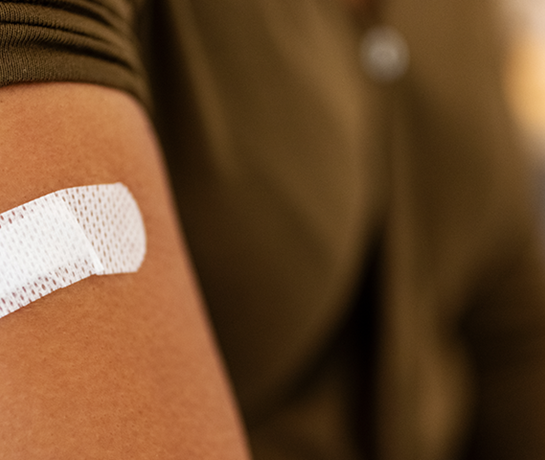

What is shingles?
- Shingles is a painful skin rash caused by the same virus that causes chickenpox. After you’ve had chickenpox, the virus stays in your body and can cause shingles later in life.
- Shingles usually appears in a band, a strip, or a small area on one side of the face or body.
- If you’ve had chickenpox, you can get shingles.
Who is more likely to get shingles?
- 1 in 3 people in the U.S. will get shingles sometime in their lives.1
- Shingles is more common in older adults and people who have weak immune systems because of stress, injury, certain medicines, or other reasons.
Shingles can cause other problems:
- Germs can get into the blisters and make shingles worse.
- Severe pain that lasts for months or years after the shingles rash heals.
- Blistery rash that spreads over the body and can affect the heart, lungs, liver, pancreas, joints, and intestinal tract.
- Inflammation, pain, and loss of feeling or vision in one or both eyes.
- Intense ear pain and a rash around the ear, mouth, face, neck, and scalp.
- Inflammation, and possibly blockage, of blood vessels, which may lead to stroke.
Prevent shingles by getting the vaccine!
- The shingles vaccine protects against shingles.
- If you are 50 or older or 19 and older with a weakened immune system, you can get the vaccine.
- You will need two doses even if you have had shingles before.
- If you are an adult and haven’t had chickenpox, you should still get the shingles vaccine.
- You might have been exposed to chickenpox, but you did not know it.
For more information on the benefits of vaccines, email contactknovasolutions@workpartners.com or call 1-800-355-0885. We are available Monday through Thursday from 8 a.m. to 8 p.m. and Friday from 8 a.m. to 5 p.m.
Sources:
1Shingles (Herpes Zoster). Centers for Disease Control and Prevention. Reviewed February 3, 2022. Accessed June 8, 2023. cdc.gov/shingles/ Copyright 2023 Healthwise Inc. This information does not replace the advice of a doctor.





